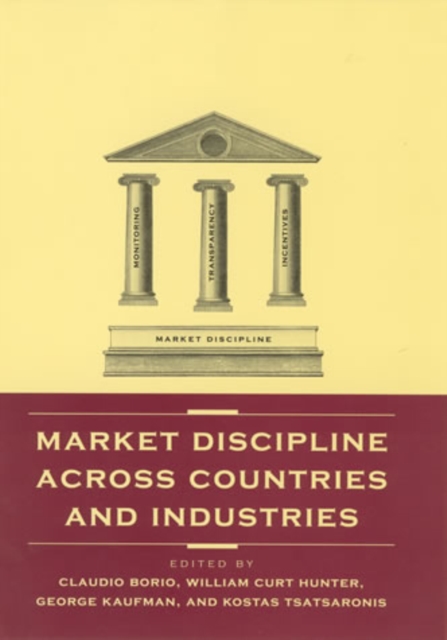
Market Discipline Across Countries and Industries PDF
Edited by Claudio Borio, William C. Hunter, George G. Kaufman, Kostas Tsatsaronis
Part of the The MIT Press series
Description
Leading academics and policymakers address the theory of market discipline and consider evidence across different industries and countries.
The effectiveness of market discipline-the strong built-in incentives that encourage banks and financial systems to operate soundly and efficiently-commands much attention today, particularly in light of recent accounting scandals. As government discipline, in the form of regulation, seems to grows less effective as the banking industry and financial markets grow more complex, the role of market discipline becomes increasingly important. In this collection, which grew out of a conference cosponsored by the Federal Reserve Bank of Chicago and the Bank for International Settlements in Basel, Switzerland, a diverse group of academics and policymakers address different aspects of the ability of market discipline to affect corporate behavior and performance. A major purpose of the book is to develop evidence on how market discipline operates across non-government regulated industries and in different countries, how successful it has been, and how it may transfer to a regulated industry. The chapters examine such topics as the theory of market discipline, evidence of market discipline in banking and other industries, evidence of market discipline for countries, the current state of corporate governance, and the interaction of market discipline and public policy.
Information
-
Download - Immediately Available
- Format:PDF
- Pages:462 pages
- Publisher:The MIT Press
- Publication Date:27/08/2004
- Category:
- ISBN:9780262269032
Information
-
Download - Immediately Available
- Format:PDF
- Pages:462 pages
- Publisher:The MIT Press
- Publication Date:27/08/2004
- Category:
- ISBN:9780262269032










